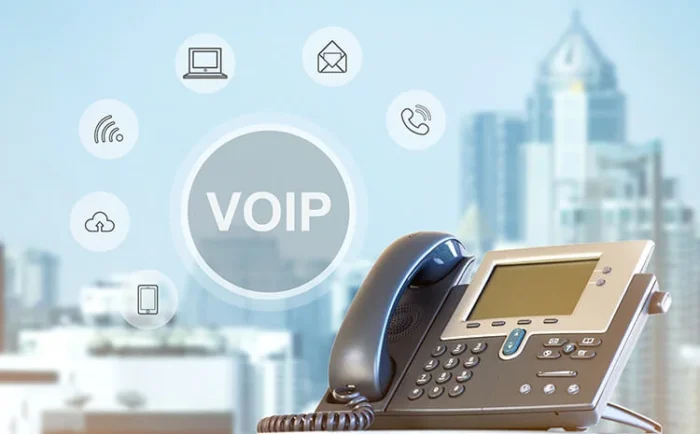
Choosing the best VoIP provider for your business isn’t that easy. Now that you’ve read many articles about VoIP phone service and its benefits and you’ve decided to upgrade, it is time to look for a provider. But which business VoIP phone service provider is the best option?
Before we delve into how to choose the best VoIP provider, let’s first understand what VoIP means.
What is VoIP?

VoIP, or voice over IP, is the name of internet phone services. VoIP services, such as Google Voice alternative use your Wi-Fi or wired internet connection to receive and make calls, unlike traditional phone services that use the landline. It refers to a business phone service that allows you to make phone calls straight from your mobile device or computer while using complex call management tools.
In the past, public switched telephone network (PSTN) lines, which were run by local, national, or international carriers, served as the foundation for the initial development of phone services. To route calls internally and externally to the PSTN, businesses used private branch exchange (PBX) systems.
All of that changed with the introduction of the Internet, which allowed voice signals to be transmitted as data packets. VoIP enables the transmission of calls over the network, like email or chat messaging.
VoIP transformed the competitive environment for phone services in addition to the technical advancements it delivered, with numerous businesses seeking to position themselves as the best VoIP provider. This makes it challenging to know which VoIP provider is the best. Thankfully, we are here to help you. Here is a guide to help you choose the best VoIP service provider for your business.
Determine the kind of phone service your business needs
First, it’s critical to understand the wide range of business phone systems and communication tools currently offered to organizations. One business phone system currently offered is voice over internet protocol (VoIP). But due to its ease of use, accessibility, and adaptability, it is gaining popularity. This is because it makes use of internet connections, which the majority of businesses already have. Additionally, phone systems can integrate with other digital systems like live messaging and video calling platforms thanks to the internet. Figure out the kind of VoIP service that best meets your needs before picking a VoIP provider. Some of the most popular VoIP system types include:
Hosted PBX: This type of VoIP offers powerful features with a dependable server and security system and is typically hosted on-site.
Cloud-based: this phone system enables you to use mobile VoIP and on-the-go VoIP features by utilizing cloud-based technology.
Unified Communication (UC) systems: provide a full range of business communication tools. This covers many different things, such as call forwarding, instant messaging, screen sharing, and video conferencing. Remote teams will benefit greatly from this system.
Determine which features your business needs

The next step is choosing the VoIP features your company needs for regular communication. Today, a majority of VoIP services offer a large number of features. So it’s helpful to understand your preferred features before you begin your search. You probably have features that are “must-haves” or “nice-to-haves” but that you don’t necessarily need. For example, your company might determine that while you don’t strictly need a virtual assistant, you need essential features like VoIP analytics and HIPAA compliance (especially if you are in the healthcare industry).
Understand the number of users who’ll use the VoIP service
The number of users—also referred to as “phone lines” or “seats”—the company will require will determine VoIP providers’ pricing and plans. Determine how many phone lines your business will require before selecting a VoIP provider.
Each employee often needs their own phone line. However, you can have some employees that require phone systems less frequently than others (for example, customer service or sales representatives who frequently use their phones). Budgeting for the VoIP system will be easier if you keep the number of users in mind. Several VoIP service providers can lower your monthly expenses when your company signs up for more phone lines.
Establish a budget
What monthly budget have you set aside for your VoIP system? Luckily, VoIP services such as Google Voice alternative have more flexible pricing than a landline phone system. You’ll easily find a VoIP service with a plan that meets your budget. The cost of VoIP today ranges from $20 to $200 per user. But remember that you normally get more robust communication tools the more you pay per user. The cost also differs depending on whether you purchase a hosted system or use a straightforward cloud-based system.
The processes you’ve previously read about above – the type of phone system, necessary features, and the number of users—will be your primary considerations when budgeting. Remember that, depending on your demands, you might also need to set aside money for communication devices like headsets, desk phones, etc.
Never compromise on security

Every cloud-based service integrated into your company must prioritize security. Cyberattack methods change daily. Comprehensive security precautions are even more important for an internet-connected application like VoIP that serves as your company’s communications center. Investigate providers thoroughly to determine who is responsible for data that passes via their cloud-based services, and if at all possible, negotiate security provisions into your contract.
Look for services that provide end-to-end encryption for both at-rest and in-transit data. Additionally, search for solutions for enhanced authentication, particularly biometrics and multi-factor authentication. Such precautions are necessary since VoIP networks are increasingly becoming targets of cyberattacks.
Choose a provider that offers excellent customer service
You rely on your VoIP system to provide your consumers with high-quality service. Therefore, you must be confident that your VoIP provider will give you excellent customer service if your demands change or something goes wrong. Choose a service provider that offers live chat help, remote support, and availability around the clock. You take your company seriously and need to engage with a VoIP provider who does the same.











